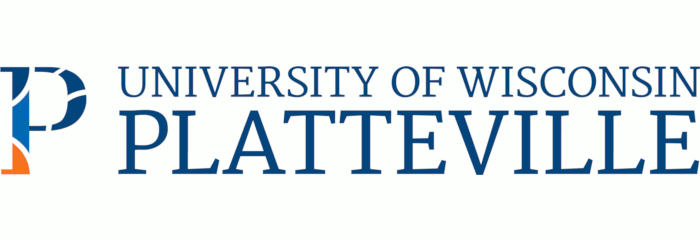ATD Blog
Modern Workplaces Need Employees With Change Leadership Skills
Fri Jul 09 2021

Content
What does it take to lead change in the 21st-century workplace? I remember my first time being trained on how to lead change while working for a US automobile manufacturer. Everything focused on ensuring each step was enabled with activities that won the workforce’s hearts and minds and enabled leaders to champion the change efforts. When we rolled out the plan, we followed a structured waterfall project plan for each step in which everyone was expected to fall into line, follow orders, and meet all agreed-upon deadlines. In that environment and at that time, this top-down approach worked well.
What does it take to lead change in the 21st-century workplace? I remember my first time being trained on how to lead change while working for a US automobile manufacturer. Everything focused on ensuring each step was enabled with activities that won the workforce’s hearts and minds and enabled leaders to champion the change efforts. When we rolled out the plan, we followed a structured waterfall project plan for each step in which everyone was expected to fall into line, follow orders, and meet all agreed-upon deadlines. In that environment and at that time, this top-down approach worked well.
Content
At present, I work as an external change management consultant and teach organizational change leadership at UW-Platteville and have found that these principles of change leadership, structured change plans, and change-ready workforce remain as pertinent today as they have during the past several decades.
At present, I work as an external change management consultant and teach organizational change leadership at UW-Platteville and have found that these principles of change leadership, structured change plans, and change-ready workforce remain as pertinent today as they have during the past several decades.
Content
Yet, there are some big differences.
Yet, there are some big differences.
Content
Today’s global business environment is driving change at unprecedented speed. The organizations we work in are struggling with potential change disruptors, including digital transformation, changing customer expectations, reinvented processes, challenging environmental and societal upheavals, and increasing global competition. New ways of working, like the Agile method, have taken root and are altering how work is being done. Bottom-up change approaches are being used more often to empower and build change resiliency by those affected by change.
Today’s global business environment is driving change at unprecedented speed. The organizations we work in are struggling with potential change disruptors, including digital transformation, changing customer expectations, reinvented processes, challenging environmental and societal upheavals, and increasing global competition. New ways of working, like the Agile method, have taken root and are altering how work is being done. Bottom-up change approaches are being used more often to empower and build change resiliency by those affected by change.
Content
Leaders and employees who excel at the Agile method and constant change have a competitive advantage over those unwilling or who are struggling to adapt to the new ways of working. It is now more commonplace that leaders and employees are expected to be skilled at leading and quickly responding to change efforts. A recent study of more than a million global respondents reported that leading change was one of the four most important for leaders and employees. This study also concluded that most individuals lack the formal education or practical experience on what it takes to make change efforts succeed.
Leaders and employees who excel at the Agile method and constant change have a competitive advantage over those unwilling or who are struggling to adapt to the new ways of working. It is now more commonplace that leaders and employees are expected to be skilled at leading and quickly responding to change efforts. A recent study of more than a million global respondents reported that leading change was one of the four most important for leaders and employees. This study also concluded that most individuals lack the formal education or practical experience on what it takes to make change efforts succeed.
How Will Organizational Change Leadership Help My Career?
Content
Besides addressing the rapidly changing global business demands, being skilled at organizational change leadership can enhance your career prospects in several ways.
Besides addressing the rapidly changing global business demands, being skilled at organizational change leadership can enhance your career prospects in several ways.
Content
One group of individuals seeks to build the organizational change leadership capability to enhance their leadership skills for their current and potential future leadership roles. This applies to leaders at all levels—from the C-suite down to field employees. Mastering how to lead change can be a game-changer for one’s career as an executive leader, management analyst, department manager, supervisor, or team leader.
One group of individuals seeks to build the organizational change leadership capability to enhance their leadership skills for their current and potential future leadership roles. This applies to leaders at all levels—from the C-suite down to field employees. Mastering how to lead change can be a game-changer for one’s career as an executive leader, management analyst, department manager, supervisor, or team leader.
Content
Some individuals may choose to start or enhance their careers as internal change management professionals or external change management consultants. Many large- to medium-sized organizations are investing in their organizational change management capabilities by creating change management teams or centers of excellence. This internal expertise facilitates specific business transformation initiatives and provides internal business groups as change management specialists. According to a May 2021 Salary.com study , the average change management specialist salary in the United States is $130,154, with a range that typically falls between $113,452 and $153,049. Salary ranges will vary widely depending on many important factors, including education, work location, industry, and the number of years you have spent in the change management profession.
Some individuals may choose to start or enhance their careers as internal change management professionals or external change management consultants. Many large- to medium-sized organizations are investing in their organizational change management capabilities by creating change management teams or centers of excellence. This internal expertise facilitates specific business transformation initiatives and provides internal business groups as change management specialists. According to a May 2021 Salary.com study, the average change management specialist salary in the United States is $130,154, with a range that typically falls between $113,452 and $153,049. Salary ranges will vary widely depending on many important factors, including education, work location, industry, and the number of years you have spent in the change management profession.
Content
Another group of individuals use their organizational change leadership capabilities to enhance their performance in their current and future job position as change agents. Increasingly, organizations are asking key professional employees to be the change agent within their current role for specific change initiatives. Most notable are our students who build this change agent expertise with an optional area of emphasis in healthcare, human resources, project management, and safety risk control.
Another group of individuals use their organizational change leadership capabilities to enhance their performance in their current and future job position as change agents. Increasingly, organizations are asking key professional employees to be the change agent within their current role for specific change initiatives. Most notable are our students who build this change agent expertise with an optional area of emphasis in healthcare, human resources, project management, and safety risk control.
Content
Organizational change leadership is a highly sought-after skill set for many leadership, technical, professional, and frontline positions. To learn more about the master’s of science in organizational change leadership program, visit our website .
Organizational change leadership is a highly sought-after skill set for many leadership, technical, professional, and frontline positions. To learn more about the master’s of science in organizational change leadership program, visit our website.

